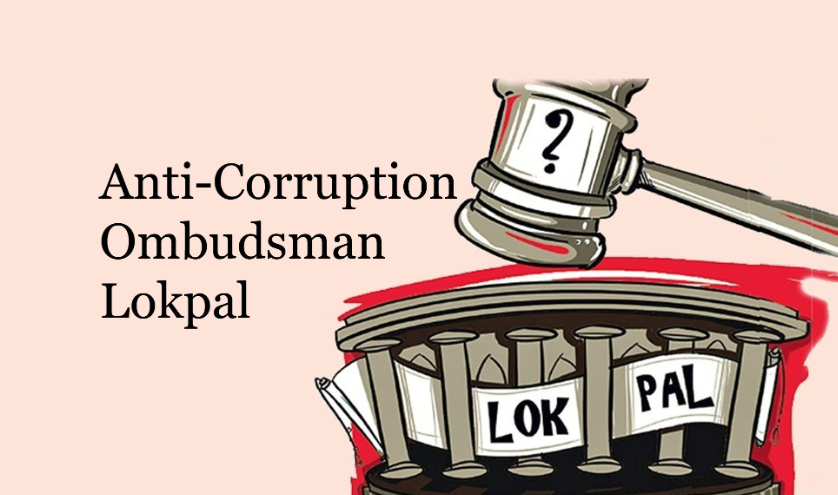Lokpal Establishes Inquiry Wing to Address Corruption (GS Paper 2, Governance)

Context
- In a significant move to strengthen its anti-corruption efforts, the Lokpal of India has established a dedicated Inquiry Wing tasked with investigating allegations of graft against public servants.
- This development marks a crucial step towards enhancing the effectiveness and efficiency of the Lokpal in tackling corruption at various levels of government.
Formation and Purpose of the Inquiry Wing
- The establishment of the Inquiry Wing is in line with Section 11 of the Lokpal and Lokayuktas Act, 2013.
- This provision mandates the Lokpal to create an inquiry wing responsible for conducting preliminary investigations into offenses punishable under the Prevention of Corruption Act, 1988.
- The primary role of the wing is to scrutinize allegations of corruption involving public servants and other officials.
- To ensure the effective functioning of this new unit, the Lokpal chairperson has been entrusted with initiating the recruitment process for a team of officers and staff.
- This team will be crucial in providing the logistical and investigative support needed for the Inquiry Wing's operations.
Structure and Staffing
The Inquiry Wing's organizational structure has been outlined and approved by the Lokpal's bench. According to the approved organogram, the wing will be led by a Director of Inquiry, who will operate under the Lokpal chairperson's guidance.
The Director will be supported by three Superintendents of Police (SPs), each specializing in different areas:
- SP (General): Responsible for general inquiries and investigations.
- SP (Economic and Banking): Focuses on economic and banking-related corruption cases.
- SP (Cyber): Deals with cyber-related offenses and digital evidence.
Each SP will be further supported by inquiry officers and additional staff, ensuring that the wing is well-equipped to handle a broad range of corruption cases.
Background on the Lokpal
- The Lokpal, established under the Lokpal and Lokayuktas Act of 2013, serves as India's central anti-corruption ombudsman.
- The creation of the Lokpal was significantly influenced by social activist Anna Hazare’s anti-corruption movement in 2011, which led to widespread public demand for effective anti-corruption measures.
Structure of the Lokpal:
- Members: The Lokpal is a multi-member body consisting of one chairperson and up to eight members. The composition includes:
- Judicial Members: Half of the members must be former Supreme Court Judges or Chief Justices of High Courts.
- Non-Judicial Members: These members are to be eminent individuals known for their integrity and ability.
- Diversity Requirements: At least 50% of the members must come from SC/ST/OBC categories or be women.
Selection Committee: Members are appointed based on the recommendation of a selection committee comprising:
- The Prime Minister (Chairperson)
- The Speaker of the Lok Sabha
- The Leader of Opposition in the Lok Sabha
- The Chief Justice of India or a designated judge
- One eminent jurist
Jurisdiction and Powers
The Lokpal's jurisdiction covers:
- Prime Minister: Except in cases related to national security, foreign relations, public order, atomic energy, and space.
- Ministers and MPs: Excluding parliamentary debates and votes.
- Public Servants: All public servants within and outside India.
- CBI: The Lokpal has supervisory powers over the Central Bureau of Investigation (CBI), including the authority to direct investigations and approve the transfer of officers handling Lokpal-referred cases.
Challenges Faced by the Lokpal
Despite its critical role, the Lokpal has faced several challenges:
- Operational Delays: There have been significant delays in appointments and operationalization, such as the 21-month delay in appointing a new Lokpal after a vacancy in May 2022.
- Pending Complaints: The Lokpal has a backlog of complaints, with 52 cases still pending as of July 2024.
- Jurisdictional Conflicts: Overlaps with other vigilance agencies create confusion and delay in investigations.
- Unconstituted Prosecution Wing: The Lokpal Act provides for a prosecution wing, which has not yet been established.
- Political Influence: The involvement of political figures in the appointment process raises concerns about potential political interference.
- Ambiguity in Jurist Selection: The criteria for selecting “eminent jurists” can lead to manipulation and favoritism.
- Lack of Constitutional Status: The absence of constitutional backing undermines the Lokpal’s authority and longevity.
The Way Forward
To enhance its effectiveness, the Lokpal must address these challenges by:
- Streamlining Processes: Implementing efficient procedures for appointment and investigation.
- Enhancing Independence: Reducing political interference and clarifying the selection criteria for members.
- Constitutional Backing: Considering amendments to provide the Lokpal with constitutional status, thereby reinforcing its authority.
By addressing these issues and strengthening its institutional framework, the Lokpal can better fulfill its mandate of combating corruption and promoting transparency and accountability within India’s public sector.


